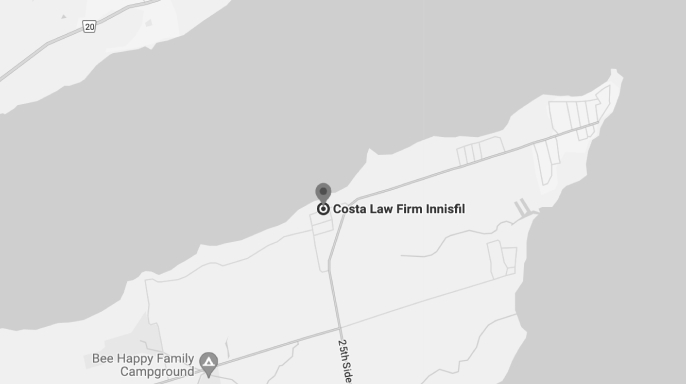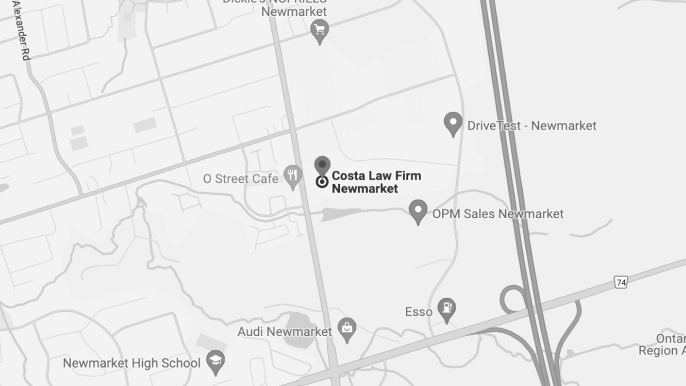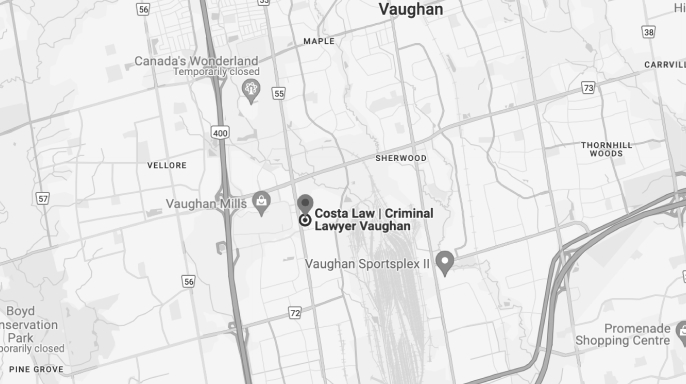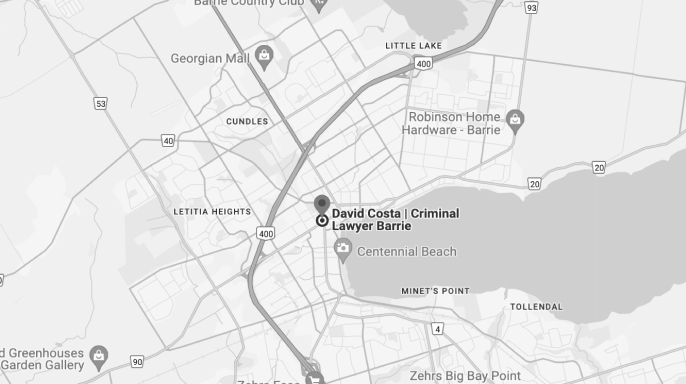Penalties for Leaving the Scene of an Accident in Ontario
Leaving the scene of an accident in which you were involved is a serious offence under the Ontario Highway Traffic Act and the Criminal Code of Canada. In addition, the law requires you to return immediately to the accident scene if you had left.
Anyone involved in any motor vehicle accident is legally obliged to share their name, driver’s license number, address, contact information, vehicle permit number, and insurance information with the other individuals involved in the accident. If you flee the scene of an accident, you can be charged pursuant to the Criminal Code of Canada or the Highway Traffic Act. Here is what you should know about offences linked to leaving the scene of an accident in Ontario.
What Constitutes ‘Leaving an Accident Scene?’
Failure to stop or remain at the scene of an accident is considered a serious criminal offence. It is commonly known as ‘hit and run.’ Here is an overview of this offence under the Highway Traffic Act and Canada’s Criminal Code.
Criminal Code of Canada – Failing to Stop after an Accident
If you are charged with ‘failure to stop after a motor vehicle accident’ under Section 320.16 of the Criminal Code, the Crown prosecutor must prove the essential elements of this offence. For instance, the prosecutor must prove that you (the accused) were reckless or knew that a vehicle had been involved in a crash.
The prosecutor must also prove that, without reasonable excuse, you (the accused) failed to stop your vehicle, provide the necessary information, and help if an individual appeared injured. You may be found guilty of leaving the scene of the accident if the Crown prosecutor can prove that you failed to perform any of these critical duties.
In addition, the Crown prosecutor must prove that you were operating a vehicle directly or indirectly involved in the crash.
Failure to Stop or Remain at Scene of an Accident – Highway Traffic Act
When an accident occurs, anyone in charge of a motor vehicle directly or indirectly involved in the crash must remain at the scene. If they had left, they must return to the scene immediately and provide all possible assistance.
Upon request, the driver must provide pertinent information to any individual sustaining loss or injuries or police officers or witnesses. This information includes name, address, driver’s license number, and insurance details.
Police Investigations
Once the police are notified of an accident involving a driver who left the scene, an investigation is set in motion. The investigation process is multifaceted and involves various steps of gathering information that could lead to the identification and location of the alleged offender (owner of the vehicle).
The police or investigating officer may canvass the scene for surveillance cameras that may have captured the crash on video. This can offer tangible evidence to identify the driver or vehicle that did not remain at the scene after the accident.
Witnesses play a crucial role in police investigations related to traffic accidents. Interviews with other drivers, pedestrians, or bystanders who witnessed the incident can offer the police valuable insights into the circumstances linked to the crash. A police officer can also obtain a physical description of the motor vehicle and the specific direction of travel after the accident.
Trial for Failure to Remain at the Scene of an Accident
Once you are charged with failing to remain at the scene of an accident, the Crown prosecutor must prove all the necessary elements of your crime. The judge will consider various factors such as the severity of the accident, your attempts to report the accident to the police, and your reasons for failure to remain at the scene.
Remember, you should seek legal advice from a skilled and knowledgeable lawyer to defend these charges.
Aggravating Factors
When a vehicle driver chooses not to remain at the scene of an accident, the police initiate a chain of investigative procedures. These procedures are intended to ensure justice and accountability. Here are actions that may aggravate the offence of leaving an accident scene in Ontario.
Failure to Report the Accident
According to the Highway Traffic Act, all accidents involving injuries or property damage over $2,000 must promptly be reported to law enforcement. If you fail to remain at the scene of the accident and choose not to report the incident to the police, you may be charged with a severe criminal offence, which carries harsh penalties.
Failure to report an accident may be viewed as an attempt to evade a legal duty. This can compound the severity of your offence and attract harsh penalties for failing to remain at the scene of the accident and provide possible assistance to any injured individual.
Hit and Run
Charges categorized as ‘hit-and-run,’ particularly those that cause bodily harm or fatalities, attract harsh penalties under the law. Incidences of hit-and-run indicate a complete disregard for other people’s safety, human life, and legal obligations when an accident occurs, which can lead to harsh penalties like imprisonment.
During sentencing, the court will take into account the nature of personal injuries the victims suffered and the societal impact of fleeing the scene of the accident. If you are facing charges related to hit and run, contact a competent lawyer who can offer legal advice and assistance in fighting such charges.
Penalties for Leaving the Scene of Accident
You may be found guilty of a provincial offence if you fail to remain at an accident scene. A conviction can result in civil or criminal liability, depending on the situation. A criminal offence under the Canadian Criminal Code, known as ‘fail to stop or failure to stop at a scene of accident,’ attracts harsh penalties and a criminal record.
The severity of the penalties depends on your intent and the personal injuries or damages resulting from the accident. ‘Fail to remain’ is a criminal offence and can happen anywhere. On the other hand, you can be charged with a ‘hit and run’ if you strike another vehicle or street car and leave the accident scene. These offences are regulated by the Highway Traffic Act. Unlike a criminal offence, this offence must have happened in a roadway.
Conviction under Section 320.19 of the Criminal Code
Failure to stop after an offence is considered a hybrid offence. A summary conviction is considered less serious, and the punishment is up to two years imprisonment less a day. If convicted by indictment, you face a maximum punishment of ten years imprisonment.
In addition, you face possible license suspension and a criminal record. Considering the harsh penalties for criminal charges involving fleeing the scene of a car accident in Ontario, it is recommended to have a skilled lawyer to fight for your legal rights.
Experienced lawyers can get your charges dropped and avoid jail time, particularly if you have legally acceptable reasons to leave a vehicle crash scene. Remember, you are legally obliged to remain on the scene or immediately return and offer assistance to any injured person.
Conviction under the Highway Traffic Act
If you are convicted of a hit and run offence, the penalties include a fine ranging from $400 to $2,000. The maximum of penalty for the offence is 6 months imprisonment. In addition, a conviction attracts demerit points on your driving record and license suspension.
The penalty for failing to report an accident (that involved a personal injury or property damage exceeding $2,000) is demerit points and a fine. Be careful when assessing the financial value of the property damage linked to an accident. Most people underestimate the scope of the damage. You should also avoid an incriminating statement when talking to a police officer.
One defence to the charge of failing to report an incident involving vehicle crashes is that you did not think that the resulting damage was $2,000 or higher. However, there must be no injuries resulting from the crash to use this defence.
Why You Need Legal Advice
If you are accused or charged with a ‘fail to remain’ or ‘hit and run’ offence, you should not face the police or the legal system on your own. Most police officials and Crown prosecutors have many years of investigating allegations of hit and run. Therefore, you need a skilled lawyer to provide legal counsel and protect your rights.
As with any criminal offence or traffic ticket, a driver accused of any offence is not legally obligated to issue a statement to the police. Contact our experienced lawyers the moment you realize you are accused of fleeing an accident scene or hit and run. Do not make any statement that could incriminate you.
CAUTIONARY WARNING: these writings are intended by Costa Law Firm Professional Corporation to serve strictly for promotional purposes and are not to be considered to be legal advice to the reader’s particular situation – ALWAYS actively consult directly and exchange particular information with a licensed lawyer or paralegal as appropriate in the circumstances.
David Costa
Dir.(416)788-6329





